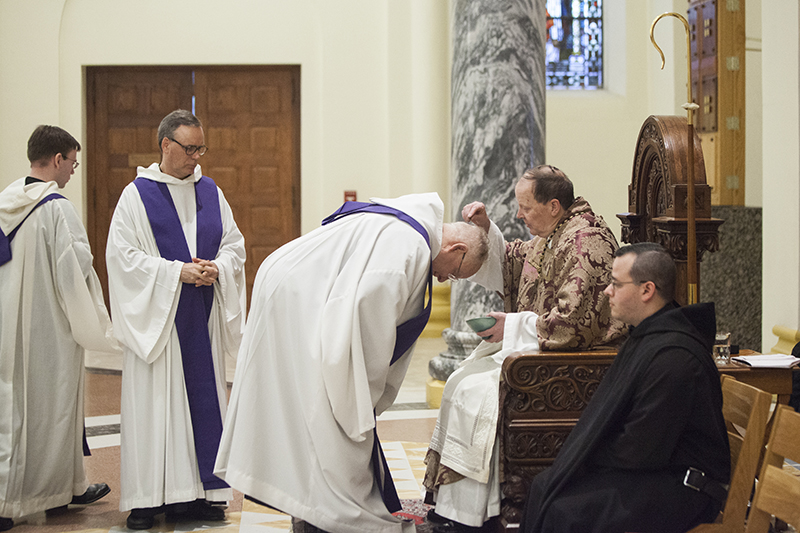Instruments of Good Works
Fr. Adrian Burke, OSB
Thursday, March 4, 2021

"Your way of acting should be different from the world's way; the love of Christ must come before all else."
Rule of St. Benedict 4:20-21
When I first felt an attraction to monastic life, it was initially the liturgy that drew me in. I loved the reverent way the community prayed together at Mass or at vespers on Sundays. What with the incense and the chant, it was a beautiful and deeply sensual experience of the Church at prayer. I loved that!
But monastic life is not about such externals. Those may draw us in, but they are not enough to keep us here. Before long, the novice learns that Benedict has in mind a full-blown, no-punches-pulled, conversion process.
The Christian life is a life’s journey through a “wilderness” of ups and downs, successes and failures, learning along the way to trust in God’s shepherding presence loving us and leading us to a promised place in God’s Kingdom. This is why the Church calls our attention during Lent to the Book of Exodus, the story about God shepherding Israel through the wilderness to a promised land “flowing with milk and honey.”
The whole of a monk’s life is a time of conversion, a time of “penance” and renouncing old ways of acting and adopting Christ’s ways – all the things we usually associate with Lent. In preparation for Lent, the monks present to the abbot their individual “bona opera” (good works), a small list of additional measures – prayer, fasting, service – that are meant to strengthen the commitment and intentions of the monk to change and grow.
They are not “penances” in the sense of punishments for sin. They are meant to be positive things (good works), added to our “usual measure of service” (49.5), to offer God with joy as a means of renewing our intention to live in harmony with one another and with God’s Spirit.
In chapter 4 of the Rule, St. Benedict lists 74 “instruments of good works” (instrumenta bonorum operum). Monks don’t have to wrack their brains to come up with things to include in their “bona opera” each year; the Rule has provided us with plenty to think about. We just need to pray with discerning hearts about what the Spirit wants to focus our attention on this year.
Maybe this year I focus on anger (4.22: “You are not to act in anger or nurse a grudge”); or maybe I need to stop making promises I can’t keep (4.27: “Bind yourself to no oath lest it prove false”); or having more personal integrity (4.28: “Speak the truth with both heart and tongue”); or maybe I need to work on being more generous with my time and talent (4.26: “Never turn away when someone needs your love”).
Coming up with things we can do to express our desire to be more Christ-like is easy really. Just ask the Holy Spirit for a little help is all.
RB 4 is a list of 74 ways to express our desire to love God above all and our neighbor as ourselves – ways of acting that are “different from the world’s ways” (4.20), participating in the love of Christ by allowing his way of loving to motivate our ways of acting.
With God’s love as the model for our lives, we can rest assured that we are doing God’s will, each day and every day, as we make our way in this life to God’s Kingdom and the joy of the resurrection!